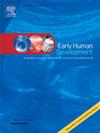A study of the infant's lived experience of neonatal intensive care
IF 2
3区 医学
Q2 OBSTETRICS & GYNECOLOGY
引用次数: 0
Abstract
Background
Neonatal care is essential for survival. However, advancements in medical care may come at a cost to the infant's experience of living. Research has traditionally focused on the effectiveness of the medical aspects of neonatal intensive care. Less attention has been paid to the subjective experience of infants hospitalised in NICU.
Aim
To provide an infant-centred, rich understanding and comprehensive analysis of the lived experience of infants hospitalised in NICU.
Methods
To explore the infant experience, we designed a novel approach, termed 360-degree phenomenology. We utilised observational fieldnotes, bedside diaries, Newborn Behavioural Observation recording forms and verbatim transcripts from individual interviews. Thematic analysis was used to analyse these data sources.
Results
This paper uses the whole data set (comprising a series of 7 case studies) to describe 4 overarching themes: (1) scary and safe; (2) all these hard things; (3) an emotional challenge; and (4) moments of meeting.
Conclusion
Hospitalisation in the newborn period poses a significant challenge to the developing infant by virtue of the complex and confronting early life experiences they endure, both physically and emotionally. This research illuminates these challenges but also shows moments of powerful meeting and connection, that serve to protect and nurture the developing infant. By listening to and valuing the infant's unique perspective and placing the infant as a person central to their own care, our research highlights strategies for immediate actionable change and future areas of research to better their early life experiences and improve long-term health outcomes.
新生儿重症监护婴儿生活经验的研究
背景新生儿护理对婴儿的生存至关重要。然而,医疗护理的进步可能会以婴儿的生存体验为代价。传统的研究主要集中在新生儿重症监护的医疗效果方面。为了探索婴儿的经历,我们设计了一种新颖的方法,称为 360 度现象学。我们使用了现场观察笔记、床边日记、新生儿行为观察记录表和个别访谈的逐字记录稿。结果本文利用整个数据集(包括一系列 7 个案例研究)描述了 4 个总体主题:(1) 可怕而安全;(2) 所有这些困难的事情;(3) 情感挑战;以及 (4) 相遇的时刻。 结论新生儿期的住院治疗对发育中的婴儿构成了巨大的挑战,因为他们在身体和情感上都要承受复杂而严峻的早期生活经历。这项研究揭示了这些挑战,但同时也展示了有力的会面和联系时刻,这些时刻有助于保护和培育发育中的婴儿。通过倾听和重视婴儿的独特视角,并将婴儿作为其自身护理的核心人物,我们的研究强调了可立即付诸行动的变革策略和未来研究领域,以改善他们的早期生活经历并提高长期健康结果。
本文章由计算机程序翻译,如有差异,请以英文原文为准。
求助全文
约1分钟内获得全文
求助全文
来源期刊

Early human development
医学-妇产科学
CiteScore
4.40
自引率
4.00%
发文量
100
审稿时长
46 days
期刊介绍:
Established as an authoritative, highly cited voice on early human development, Early Human Development provides a unique opportunity for researchers and clinicians to bridge the communication gap between disciplines. Creating a forum for the productive exchange of ideas concerning early human growth and development, the journal publishes original research and clinical papers with particular emphasis on the continuum between fetal life and the perinatal period; aspects of postnatal growth influenced by early events; and the safeguarding of the quality of human survival.
The first comprehensive and interdisciplinary journal in this area of growing importance, Early Human Development offers pertinent contributions to the following subject areas:
Fetology; perinatology; pediatrics; growth and development; obstetrics; reproduction and fertility; epidemiology; behavioural sciences; nutrition and metabolism; teratology; neurology; brain biology; developmental psychology and screening.
 求助内容:
求助内容: 应助结果提醒方式:
应助结果提醒方式:


